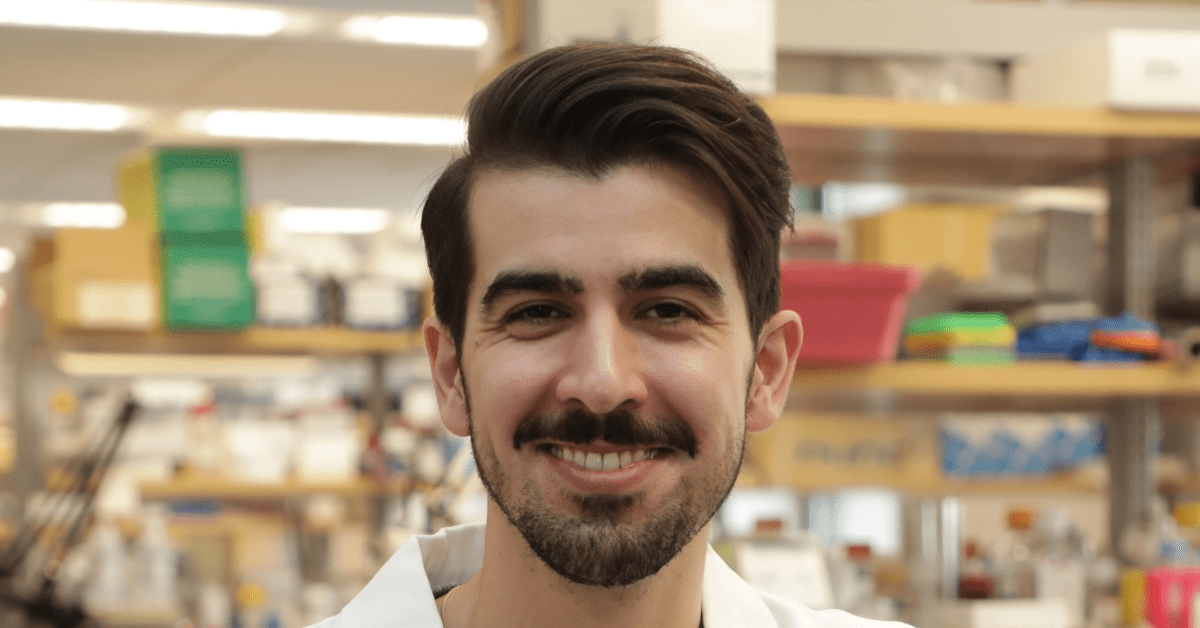
Dr. Dennis Schaefer-Babajew, a physician-scientist and clinical scholar at Rockefeller University, studies a concept called antibody feedback. When the body encounters a vaccine for the first time, its B cells produce a variety of antibodies against molecules in the vaccine known as antigens.
The B cells that produce some of the most successful antibodies become memory cells, which can quickly start creating the same antibodies later when the body encounters the antigen during an infection. “From an evolutionary perspective, you’re shooting a cruise missile at one really good target in the beginning,” Schaefer-Babajew says.
But if the body receives a subsequent, slightly different vaccine, that process can turn into more of a shotgun blast. Even if memory cells produce the old, previously effective antibodies, other B cells start producing a new, different set of antibodies in the hopes that some will work. Schaefer-Babajew’s research suggests that these secondary antibodies are often of lower quality, in part because the original antibodies block the new ones from reaching their targets.
Achieving the Michelson Prize for Antibody Vaccine Response Research
In recognition of his proposal to characterize how antibody responses to vaccines affect the immune response to future vaccinations, Michelson Medical Research Foundation and the Human Immunome Project have awarded the 2023 Michelson Prizes: Next Generation Grants to Dr. Dennis Schaefer-Babajew.
The Michelson Prizes, a $150,000 grant awarded annually to investigators 35 or younger who are focused on human immunology, vaccine discovery, and immunotherapy, will allow Schaefer-Babajew to study how antibody feedback responses affect sequential vaccination strategies such as the yearly flu vaccine.
Schaefer-Babajew received his MD from the Heidelberg University School of Medicine but always knew he wanted to do research. “I had this obsession with immunology,” he says, thanks to one inspiring medical school professor. So, he completed his doctoral thesis in the subject while finishing his medical degree.
He joined Rockefeller University in 2020, just in time to take part in a natural experiment. The university was part of a clinical trial testing monoclonal antibodies specifically engineered to attack SARS-CoV-2. People enrolled in the trial had never had COVID, so their immune system had never developed its own memory cells or antibodies against the virus.
“I saw a chance to study how these artificial, high-quality antibodies would affect the immune system once the trial participants encountered COVID antigens for the first time,” says Schaefer-Babajew. “Without the Covid situation the way it was, it would have been impossible to do this type of study.”
Dr. Dennis Schaefer-Babajew’s Antibody Vaccine Research
Research Discovery with COVID Vaccination Trial Participants
After the trial participants were vaccinated against COVID, the researchers looked at how well the antibodies and memory B cells in their blood bound to its antigen compared to those isolated from vaccinated people who hadn’t received the pre-treatment. They found that the trial participants’ B cells made more and worse types of memory B cells than those who hadn’t received the pre-treatment, suggesting the strong monoclonal antibodies had interfered with the participants’ immune response to viral antigens.
“Because the immune system has finite resources to combat an infection, making new, weak antibodies when it encounters an old antigen could be, at best, a waste,” Schaefer-Babajew says. “At worst, the weak antibodies can cover the antigen and block the good B cells from accessing their target, especially if the antigen’s best target is already hidden amid other molecules, such as the sticky sugars that coat the influenza virus.
Luckily, Schaefer-Babajew says, SARS-CoV-2 seems to have many good spots for antibodies to bind. But viruses like flu or HIV have only a few, which he says “has pretty profound ramifications for any type of vaccine that you have to give multiple times.” If boosting immune systems against a virus ends up steering them astray in the long term, he says, “then the whole premise is not going to work.”
With the Michelson grant, Schaefer-Babajew plans to develop genetically engineered mice to test this theory, studying how multiple vaccinations affect their ability to make good antibodies. He eventually plans to lead his own research team studying antibody feedback responses. “This has been a growing topic of interest among immunologists since the COVID pandemic started,’ he says. “It’s super nice to see a lot of labs started working on this now.”
Get the latest news from Michelson Philanthropies. Sign up for our newsletter today!
